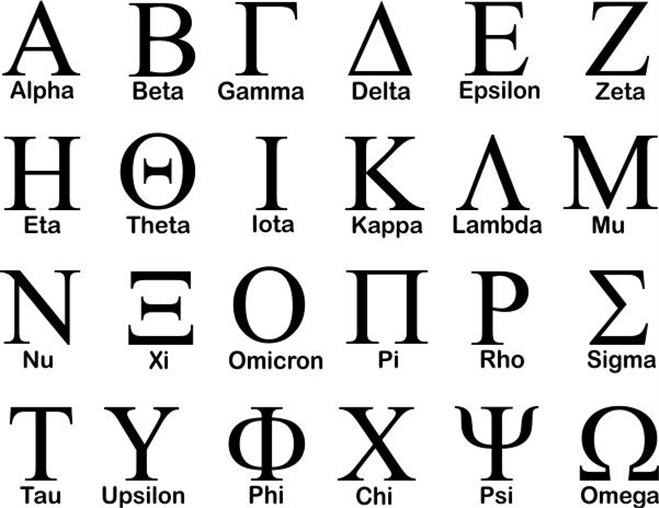In addition to the pride we each feel in our membership with Chi Omega, we may be equally as proud of our specific chapter. Our chapter’s name inevitably represents our story as a Chi Omega. It takes us back to our years spent in school and to the friendships that were made to last long after those years had passed.
Do you ever wonder how our chapter names came to be?
As many know, Psi was Chi Omega’s first chapter at the University of Arkansas. Although we don’t have record of exactly why our Founders chose to start with Psi instead of “Alpha” like many other fraternities and sororities did, the meeting minutes from April 6, 1895 state, “The name Psi was chosen as the name of the Mother Chapter.”
After naming the first chapter Psi, our Sisters worked backward through the Greek Alphabet naming the next chapters Chi, Phi, Upsilon, Tau, etc. When the first letter of the Greek alphabet was reached, Alpha, Chi Omega began a double nomenclature system, continuing to circle backward through the alphabet for the chapter’s “first name” and adding a “last name,” beginning with the Alpha series, then continuing with a Beta series, and so forth. For example: Psi Alpha, Chi Alpha, Phi Alpha, etc. until reaching Alpha Alpha. Then, the next chapters restarted with Psi Beta, Chi Beta, Phi Beta, etc.

The last letter in the Greek alphabet, Omega, is not used as a part of any chapter name because the Omega Chapter is reserved only for deceased members of Chi Omega. This Greek letter is skipped over entirely when moving through the chapter naming format.
Although this naming structure remains true for most of our chapters there are aberrations when looking at the chapter roll in its entirety. One of several examples would be Phi Alpha at The George Washington University. This chapter was installed in 1903, meaning they should have been named with a single letter, but they were allowed to keep “Phi Alpha,” as it was the name of their local group.
In addition to Phi Alpha, Epsilon Alpha is another example of an anomaly in our chapter roll. The original date of the installation for Epsilon Alpha was scheduled to take place March 1919, but the installation officer was unable to make the trip. Therefore, the chapter was not installed until November 13, 1919 but had already been issued their chapter name of “Epsilon Alpha.” Between the originally planned and the actual installation date other chapters were installed, causing Epsilon Alpha to appear out of order in the chapter roll.
Our Sisters have followed the naming format through the Alphas with Psi Alpha, Chi Alpha, Phi Alpha, etc. and did the same with the Betas, Gammas, Deltas, Epsilons, and Zetas. But in the 1960’s, with no explanation as to why this was done, the Etas were skipped , and chapters were named with Theta. Next, the Iotas were skipped, and Chi Omega resumed with the Kappas, Lambdas, and Mus, which is where we currently stand in naming chapters. Our most recently chartered chapter is Gamma Mu at Coastal Carolina University in 2017.
Although done in the past several times, reusing names of chapters that have been closed is no longer in practice. Lyn Harris, National Archivist, believes that former S.H. Mary Love Collins repurposed chapter names so it would not be as obvious that Chi Omega closed a chapter.

Each Sister’s story is commonly reflective of her time within her individual chapter, representing its own distinct piece of our Chi Omega Sisterhood, influenced by geographical regions, varying campus cultures, and the unique Sisters that are recruited there.
These names take us back to reminiscent times with our pledge Sisters, Initiation, gaining our Bigs and Littles, and eventually graduating from our school and donning our alumnae status. These chapter names hold our memories from our first days as Chi Omegas, and are carried with us as a point of pride for years to follow.
Next time you’re asked your collegiate chapter, you can share it proudly while knowing more about how your name came to be!
